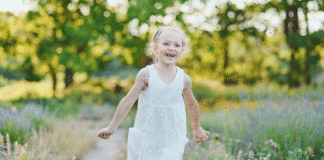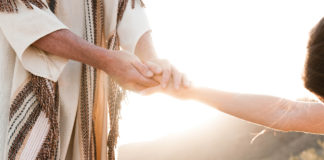Mothers-in-law and daughters-in-law: a recipe for positive interaction
A common source of jokes and stories with subtext, the relationship between mothers-in-law and daughters-in-law appears to be characterised by particular sensitivities.
Freedoms on the verge of extinction
"We are fast approaching the stage of the ultimate inversion: the stage where the government is free to do anything it pleases, while the citizens may act only by permission; which is the stage of the darkest periods of human history, the stage of rule by brute force." (Ayn Rand)
The last man in the water
Self-sacrifice—the ability of some people to put the lives of others above their own—is not at all easy to understand.
Seven books about change worth reading
Almost all bookstores today have a section dedicated to books on change, except that the generic name given to this category is "personal development", or "self-help".
Hope, a legacy of another world
Hope can be palpable and elusive at the same time, both reasonable and independent of logic. Yet this independence from logic is not synonymous with indifference to reason, but a victory over it. Hope has its own logic, one that changes lives for the better.
Teenagers and religion
In A History of Young People in the West, Giovanni Levi and Jean-Claude Schmitt posit that, in the West, adolescence is first and foremost a social-cultural construction, and therefore a cultural product. They considered it at most subsidiarily as a stage in the physiological process of growing up.
Assertive behaviour: a remedy for poor communication
I believe that every Eastern European has, at some point, realised when meeting a Westerner that their interaction could be improved if they were more open themselves, as the foreigner usually is.
How to stick with your New Year’s resolutions
The end of a year is both a period of revising and the most favorable time for drafting wishes for the upcoming year. However, the problem arises when we realise that last year’s resolutions have remained unfulfilled in the absence of a concrete plan.
The only death that can be avoided
"If there is anything more heartbreaking than a body perishing for lack of bread, it is a soul which is dying from hunger for the light." (Victor Hugo)
God is love and that makes us eligible, as imperfect as we may be
We have trouble understanding and accepting the image of a loving God, as we have grown too familiar with the type of love that offers itself only when it finds in a person the qualities that make them easy to love.
Five tips for becoming a creative power couple
You meet someone who is in-sync with you. You have the same hobbies and interests, you find the same things funny and you love sharing ideas with them. As your relationship grows beyond the early stages, it becomes clear that your connection shouldn’t be constricted to everyday activities, that you should broaden your horizons and try new things. You realise that your partnership has...
Everyone goes through a midlife crisis. True or false?
Up until she was 49 years old, Sue Shellenbarger had been happy with her life. She had a nice home in Oregon, USA, and a good job as the Wall Street Journal's work and family columnist. However, in the space of just two years, she had divorced her husband, emptied out her bank account, and developed a real passion for adventure that landed...
A game of life
“Circumstances do not matter when you have a dream.” This seems to be the central message of the stories of those who have succeeded despite unimaginable obstacles. But can dreams still be born in the midst of the struggle for survival, in depravity, and misery? And even if they are born, do they have a chance of survival?
My Friend’s Friend | Friendship and God
You really don't realize what your thoughts about God are until you have nothing left but the conviction expressed in the book of the prophet Jeremiah: My Father, my friend from my youth (Jeremiah 3:4).
The kindness that wipes away the effects of daily stress
Daily stress is a good excuse to avoid other people's needs, but this choice is a double loss. The kindness we display to make other people's days better is a very strong antidote to the high level of stress we experience daily.


























